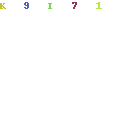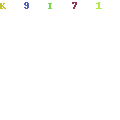Aslam Khan (38) was one of the thousands of Mumbaikars trapped in the city without work during the Covid-19 pandemic. Khan, who stays on the streets, used to make a living as an agent for a local tourist bus operator.
Last October, he suddenly found himself in the custody of the Mumbai Police. He was booked under the draconian Bombay (Prevention of Begging) Act, 1959, which allows the police to pick up anyone on a hunch that an individual is a beggar or a destitute with no means of fending for himself. If convicted by a court, a person can spend between one to 10 years in jail.
Khan, however, got off lightly, having spent seven days in a beggar’s home, away from his wife and children.
With the pandemic having destroyed the livelihood of many, the city has seen a substantial increase in the number of people getting detained under the anti-beggary Act. The number of people picked up under the Act was 3,107 in 2019, it fell to 1,053 in 2020 when the police refrained from booking people due to the pandemic. The number rose to 4,311 in 2021 and for the first three months of 2022, it stands at 1,167.
As all of India’s laws, the anti-beggary Act is based on an archaic British law against vagrants. The Act was first drafted for the state and later copied by most of the states in the country. Under the Act, anyone having no visible means of subsistence and found wandering in a public space is deemed as a beggar. All those who solicit alms in public places under any pretense, including by singing, dancing, fortune telling or performing on the streets, are also deemed as beggars.
Mumbai acts like a beacon for migrants who come from far and wide to find work on its streets. Many do odd jobs and sleep on the street during the night. However, many face the threat of being rounded up as beggars by the Beggar Squad of the Mumbai Police if it deems that they look like a destitute.
The arrested individuals are subsequently presented before the metropolitan magistrate court in Kurla, which handles cases pertaining to beggars. The court can make a summary inquiry and allow the individual to leave if it is satisfied that he is not a beggar.
For detailed deliberations, the court can send an individual to a remand of upto 14 days to a beggar’s home while the inquiry is conducted. In Mumbai, the court sends those who are remanded to the beggar’s home in Chembur.
The probation officer subsequently undertakes an inquiry and submits his report to the court. If the reports says that the individual is a beggar, the person is convicted and sent to a beggar’s home for a period of between one to three years. Strangely, the court can also order the detention of all those who it thinks are dependent on the beggar.
Many of those who were booked under the Act told The Indian Express that they were not beggars but homeless.
“Last month, while I was eating a vada pav outside Dadar railway station, a police van picked me up. I thought I was being taken for a Covid-19 test, but landed at a home for beggars,” said Nitesh Singh (30), a grinder worker from Patna. He spent a week at the beggar’s home in Chembur.
Activists claimed that the Act has led to the insensitive treatment of those who are ostensibly poor and denies them their rights. It is also blamed for failing to bring such persons out of destitution and resulted in further marginalization of the destitutes.
Mohd Tarique, Director of Koshish-Field Action Project of TISS – working on homelessness – said the whole process of arresting a person, irrespective of whether he is into begging or not, needs to stop. “The law defines beggary in a way that range of vulnerable situations like mental illness, leprosy affected persons, migrant workers, abandoned elderly, persons with disabilities, trans persons, certain de-notified communities, informal labour and many more – everything is criminalised as beggary. This law needs to go. You are punishing people for being poor. Even those working but getting caught end up losing their jobs,” said Tarique.
“Most at beggar’s home are homeless, working in the unorganised labour sector — loaders, cart pushers, coolies, hawkers, construction workers, daily wage workers, etc. A significant number are also abandoned elderly or those with mental health issues,” said Shekhar Thapa, who is part of the Koshish team.
The police, meanwhile, claimed they are only implementing the law and that they do not pick up people randomly. “We never pick up homeless people or daily wage labourers. All arrests for begging are made during the day. We pick up those begging outside temples, mosques and gurudwara. Also, we pick up only those who can earn a living but still take to begging, as they have got used to free food and accepting free money,” a senior officer said.
Source: https://indianexpress.com/article/cities/mumbai/destitutes-picked-up-by-mumbai-police-increases-post-pandemic-7884288/



